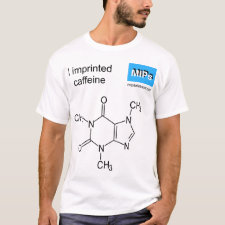
Authors: Saad N, Chaaban M, Patra D, Ghanem A, El-Rassy H
Article Title: Molecularly imprinted phenyl-functionalized silica aerogels: Selective adsorbents for methylxanthines and PAHs.
Publication date: 2020
Journal: Microporous And Mesoporous Materials
Volume: 292
Article Number: 109759.
DOI: 10.1016/j.micromeso.2019.109759
Alternative URL: https://www.sciencedirect.com/science/article/pii/S138718111930616X
Abstract: Molecular imprinting of highly porous silica aerogels is reported for the first time and the selective adsorption of methylxanthines and polycyclic aromatic hydrocarbons (PAHs) has been investigated. The adsorption onto surface-functionalized caffeine-imprinted silica aerogels showed the phenyl-functionalized materials to have a higher adsorption capacity than others. The characterization of imprinted and non-imprinted materials confirmed the removal of the template molecules. The specific surface area and porosity of imprinted silica aerogels were found greater than those of their non-imprinted peers. The caffeine-to-silicon and water-to-silicon molar ratios exhibited a noticeable effect on the behavior of the molecularly imprinted aerogels. The optimal synthesis conditions were applied in the competitive adsorption between caffeine and theophylline performed with caffeine-imprinted phenyl-functionalized silica aerogels, where higher affinity towards caffeine was seen. The competitive adsorption of various PAHs onto 2-naphthol-imprinted phenyl-functionalized silica aerogels showed also a similar behavior towards 2-naphthol. Comparing the adsorption capacity of molecularly imprinted aerogels to their non-imprinted peers highlights the undeniable influence of imprinting the material on its behavior towards target molecules
Template and target information: caffeine, 2-naphthol
Author keywords: molecular imprinting, silica, aerogel, selective adsorption, Methylxanthines, PAHs



Join the Society for Molecular Imprinting

New items RSS feed
Sign-up for e-mail updates:
Choose between receiving an occasional newsletter or more frequent e-mail alerts.
Click here to go to the sign-up page.
Is your name elemental or peptidic? Enter your name and find out by clicking either of the buttons below!
Other products you may like:
 MIPdatabase
MIPdatabase









